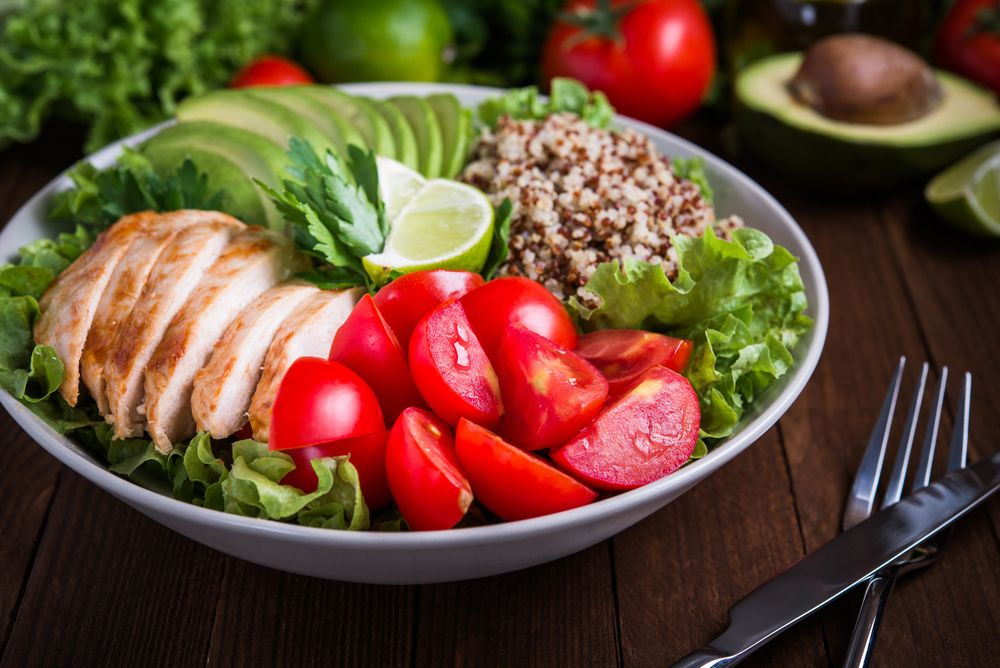Are you looking to adopt a healthier eating pattern that promotes overall well-being and longevity? Look no further than the Mediterranean diet, renowned for its numerous health benefits and delicious, flavorful foods. In this comprehensive guide, we’ll explore the principles of the Mediterranean diet and provide practical tips on how to create balanced, nutritious meals inspired by this traditional way of eating.
1. Understanding the Mediterranean Diet
The Mediterranean diet is not just a diet but a lifestyle rooted in the culinary traditions of countries bordering the Mediterranean Sea, such as Greece, Italy, Spain, and Morocco. It emphasizes whole, minimally processed foods, abundant plant-based foods, healthy fats, and moderate consumption of fish, poultry, and dairy.
2. Key Components of the Mediterranean Diet
- Abundance of Plant Foods: Fill your plate with a variety of fruits, vegetables, legumes, nuts, seeds, and whole grains. These foods provide essential nutrients, fiber, and antioxidants to support overall health.
- Healthy Fats: Incorporate sources of healthy fats such as olive oil, nuts, seeds, and fatty fish like salmon and sardines. These fats are rich in omega-3 fatty acids and monounsaturated fats, which have been linked to numerous health benefits, including heart health and cognitive function.
- Moderate Consumption of Animal Products: While the Mediterranean diet is predominantly plant-based, it also includes moderate amounts of lean protein sources like poultry, eggs, and dairy products, as well as occasional servings of red meat.
- Emphasis on Fresh, Seasonal Foods: Choose fresh, seasonal ingredients whenever possible and minimize the use of processed and refined foods. Opt for local, sustainably sourced produce and seafood to support environmental sustainability.
- Herbs and Spices: Flavor your meals with a variety of herbs and spices, such as basil, oregano, garlic, and turmeric, instead of relying on excess salt or sugar for flavoring. These aromatic ingredients not only enhance the taste of your dishes but also provide additional health benefits.
3. Building a Balanced Plate
Creating a balanced plate following the principles of the Mediterranean diet is simple. Here’s a guide to help you get started:
- Fill Half Your Plate with Vegetables: Aim to make vegetables the star of your meals, filling at least half of your plate with a colorful array of fresh or cooked vegetables. Include a variety of colors, textures, and types to ensure you get a wide range of nutrients.
- Add Lean Protein: Incorporate lean protein sources such as fish, poultry, beans, lentils, or tofu to provide satiety and essential amino acids. Aim for a palm-sized portion of protein per meal.
- Include Whole Grains: Choose whole grains like quinoa, brown rice, farro, or whole wheat pasta to complement your meal and provide fiber, vitamins, and minerals. Fill about a quarter of your plate with whole grains.
- Healthy Fats: Drizzle your vegetables and grains with extra virgin olive oil or sprinkle nuts and seeds on top for added flavor and nutritional benefits. Aim for a tablespoon or two of healthy fats per meal.
4. FAQs (Frequently Asked Questions):
Q1: Can I still enjoy sweets and desserts on the Mediterranean diet? A1: Yes, the Mediterranean diet allows for occasional indulgences in sweets and desserts, but they should be enjoyed in moderation. Opt for homemade treats made with natural sweeteners like honey or maple syrup, and savor them as part of a balanced diet.
Q2: Is wine included in the Mediterranean diet? A2: Yes, moderate consumption of red wine is often included as part of the Mediterranean diet, particularly during meals. However, it’s essential to drink alcohol responsibly and in moderation, as excessive consumption can have negative health effects.
Q3: Are there any specific foods to avoid on the Mediterranean diet? A3: While the Mediterranean diet emphasizes whole, minimally processed foods, it’s best to limit or avoid highly processed foods, sugary beverages, and excessive amounts of red and processed meats. These foods are not consistent with the principles of the Mediterranean diet and may have negative health effects.
Q4: Can I follow the Mediterranean diet if I have dietary restrictions or food allergies? A4: Yes, the Mediterranean diet is flexible and can be adapted to accommodate various dietary restrictions and food allergies. For example, if you have a gluten intolerance, you can choose gluten-free grains like quinoa or buckwheat instead of wheat-based grains like pasta or bread.
Q5: Is the Mediterranean diet suitable for weight loss? A5: Yes, the Mediterranean diet has been associated with weight loss and weight management when combined with a healthy lifestyle, including regular physical activity and portion control. By focusing on nutrient-dense, whole foods and emphasizing plant-based meals, the Mediterranean diet can support sustainable weight loss goals.

